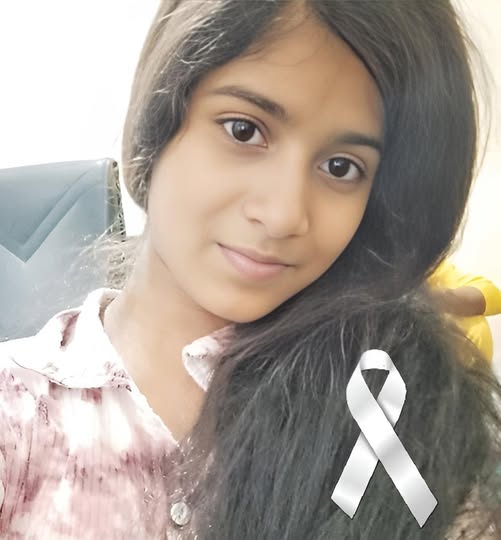A deeply tragic incident has emerged from New Delhi, one that has shaken both Pune and Delhi communities and raised troubling questions about child labor, consent, and the safety of vulnerable minors. A 14-year-old girl from Pune, identified as Shridevi Basbaraj Chauhan, was found hanged in the servants’ quarters of an upscale residential apartment in Delhi. The shocking discovery has left her family devastated and the public outraged, particularly because of the circumstances under which she was taken to the capital.
According to reports from Pune City Police, Shridevi had been working as a childcare worker in Pune, caring for two young children at an affluent residential complex in Vadgaon Sheri. She had only been employed there for about a month and a half. Despite her young age, she was given the heavy responsibility of looking after children aged three and seven, a situation that already raised concerns about the violation of child labor laws. On June 16, members of the wealthy family she worked for took her to Delhi. What makes the situation more disturbing is that this journey apparently happened without her mother’s formal consent.
Just five days later, on June 21, she was discovered dead. Authorities at Vivek Vihar police station in Delhi registered a case of accidental death, but the mysterious circumstances surrounding her demise have prompted demands for a more thorough investigation. A police officer from Vivek Vihar told the Pune Times Mirror that they were probing the events leading up to the tragedy. While the official line is that the matter is under investigation, many questions remain unanswered, especially regarding why a young girl was taken so far from home and placed in such a vulnerable position.
Shridevi’s final days paint a heartbreaking picture. She was reportedly staying in the servants’ quarters of her employer’s residence in Delhi, a small ground-floor room typically allocated to domestic staff. On the day before her death, her sister recalled speaking with her over the phone. Shridevi had sounded cheerful, sharing details about her trip and how she was being treated by the family. Nothing in her tone suggested despair or fear, which makes her sudden death even harder for loved ones to comprehend.
After news of the incident reached Pune, the Chandanagar Police Station arranged for Shridevi’s mother to travel to Delhi so she could complete the formalities and claim her daughter’s body. The Chauhan family, originally from Karnataka, has been living in Pune for the past two years. They settled near Brahma Sun City, renting a modest home while surviving on daily-wage work. Shridevi lived there with her mother, sister, and two brothers. Like many families struggling financially, they relied on every possible contribution to sustain themselves. For Shridevi, this meant working at an age when she should have been in school, protected from adult responsibilities.
The grief of the family is compounded by anger. They insist that Shridevi was taken to Delhi without her mother’s consent, effectively making her journey forced. Her sister was not even aware that she had traveled so far from home until the devastating news arrived. While Delhi Police maintain that no formal complaint has yet been filed by the family, Pune authorities have already asked for a comprehensive investigation. Senior Police Inspector Seema Dhakne told reporters that, given the sensitivity of the case, Pune police had requested a full autopsy and detailed inquiry into every aspect of the death.
Child rights activists have also stepped in, pointing out that this case highlights the exploitation of minors in urban households. Employing a 14-year-old girl as a caregiver is not only morally questionable but also in direct violation of child labor laws. While families often justify hiring young girls by claiming they “help” with household work or look after children in a safe environment, the reality is far darker. These minors are separated from their families, made to work long hours, and often transported to unfamiliar places where they have little protection or recourse if something goes wrong. Shridevi’s death has brought these uncomfortable truths into sharper focus.
The autopsy report is still awaited, but until then, speculation continues. Was this truly a case of accidental death, or was there more at play? Could it have been suicide, a tragic act of desperation that nobody saw coming? Or were there circumstances within the household that may have contributed to her death? Authorities are also reviewing Shridevi’s communication with her mother in the days before her passing, hoping to find clues in their conversations that might explain her state of mind.
Meanwhile, arrangements are being made to fly her body to Karnataka for the final rites, where extended family members are waiting to say their last goodbyes. For her mother and siblings, the grief is immeasurable. They had moved to Pune in the hope of building a better life, away from poverty in their home state, only to face the devastating loss of a daughter who should have been safe in their care.
The public response has been one of outrage and sorrow. Many are demanding not only a thorough investigation into Shridevi’s death but also stricter enforcement of child labor and trafficking laws. Activists are calling for accountability, both from the family that employed her and from authorities who allowed such a young girl to work in the first place. Her death has become a painful reminder of how easily vulnerable children slip through the cracks of society’s protections.
For now, Pune police have assured that the investigation will continue once the family returns to Vadgaon Sheri after the funeral. The case is far from closed, and both cities remain on edge as they await answers. What happened in that small servants’ room in Delhi may take time to unravel, but Shridevi’s story has already sparked a much-needed conversation about child rights, exploitation, and the responsibility of adults to protect children rather than place them in harm’s way.
In the end, Shridevi’s death is not just a family tragedy—it is a societal failure. A 14-year-old girl should never have been working as a caregiver, much less transported across states without her mother’s consent. Until the truth is uncovered and justice is done, her story will remain a haunting reminder of the dangers faced by countless children forced into labor under the guise of “helping” wealthy households. It is a call for reform, compassion, and vigilance, so that no other family has to endure the heartbreak the Chauhans are now living through.






